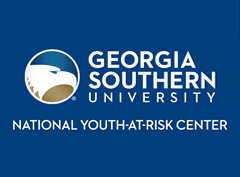Teaching Social and Emotional Learning to support Youth-At-Risk
Focused Area
Improving School Climate for Youth-At-Risk
Relevance to Focused Area
Social and Emotional Learning (SEL), when explicitly taught and modeled, teaches students the skills required to speak respectfully, build positive human relationships, and manage emotions. This changes a school climate, making it more inviting and engaging. In fact, all kids benefit from SEL, but it is a vital support for youth-at-risk.
Primary Strand
Social & Emotional Skills
Relevance to Primary Strand
This session will support the implementation and teaching of Social and Emotional Learning programs, thus it is directly related to the primary strand.
Brief Program Description
Do you want an initiative that has been proven to increase student engagement, increase their pro-social skills, decrease their anti-social behavior, AND increase academic achievement? This session will discuss social and emotional learning evidence based programming for all grade levels. You will walk away with proven strategies, and a lot to think about as you become the champions for teaching social and emotional skills to support youth-at-risk.
Summary
Social and Emotional Learning (SEL) programs have proven to change school climates, promote student engagement, and even make an impact on standardized test scores. This session will introduce the attendees to the basics of SEL, including what it is, what the research says, and how it's implemented, at the classroom level, the school level, and the district level. The structure for this presentation will be interactive, based on the best practices behind how to present an SEL lesson in the first place - so participants will experience SEL from the viewpoint of teacher and student. In addition, we will look at the five competencies of SEL: self-awareness, self-management, relationship management, social awareness, and positive decision making. We will define each competency and show how these skill sets can be important life skills for all students, but most importantly for the youth-at-risk population. Since strong Social and Emotional Learning includes an integration into the regular curriculum, we will show how SEL lessons can be infused into content area teaching, how it can be taught directly, and how it can be modeled in the school climate. Participants will walk away with strategies to use immediately as well as information to bring back to their schools and districts in order to champion SEL programming for their students.
Evidence
Research shows that SEL can have a positive impact on school climate and promote a host of academic, social, and emotional benefits for students. Durlak, Weissberg et al.'s recent meta-analysis of 213 rigorous studies of SEL in schools indicates that students receiving quality SEL instruction demonstrated:
- better academic performance: achievement scores an average of 11 percentile points higher than students who did not receive SEL instruction;
- improved attitudes and behaviors: greater motivation to learn, deeper commitment to school, increased time devoted to schoolwork, and better classroom behavior;
- fewer negative behaviors: decreased disruptive class behavior, noncompliance, aggression, delinquent acts, and disciplinary referrals; and
- reduced emotional distress: fewer reports of student depression, anxiety, stress, and social withdrawal.
Format
Individual Presentation
Biographical Sketch
Trish Shaffer is the Coordinator of the Multi-Tiered Systems of Support and Social Emotional Learning Department at the Washoe County School District. As such, she has designed and offered district-wide professional learning with follow-up coaching or support to central office personnel, site-based administrators, school-based educators, and educational support professionals on Social and Emotional Learning. She is in charge of designing and executing the roll-out plan for SEL for 102 schools and all students PreK-12 in the Washoe County School District. Trish has a Master of Arts Degree in Special Education, with an emphasis in Applied Behavior Analysis, and served as a Special Education teacher as well as a college instructor, teaching courses on how to teach special education and how to support families with children with disabilities. Trish won the Mary Utne O'Brien Award, given by the Collaborative for Academic, Social, and Emotional Learning (CASEL) in 2013, and gave a TEDx Talk in 2014. Trish has a second Master of Arts Degree in Administration and Supervision.
Victoria Blakeney holds a Master’s Degree in Education Leadership and more than ten years’ experience in the administration of school-based programs for social and emotional learning. In Victoria's current role at the Nevada Department of Education she is responsible for providing technical assistance and training in bullying prevention, identification and reporting; facilitating positive school climates and positive human relationships; and teaching pro-social skills. She served as the first Social and Emotional Learning Curriculum Coordinator in the Anchorage School District, bringing together diverse stakeholders to plan, coordinate and implement school initiatives, and was honored by the Collaborative for Academic, Social and Emotional Learning as the first ever winner of the Joseph E. Zins Purpose Award, given to a practitioner who has contributed substantially to promoting system-level changes for SEL in schools. Victoria has been both a high school teacher and an elementary school vice-principal, where she worked to implement social and emotional learning theories and practice at the classroom and school level, and has worked with curriculum developers to write SEL lessons for publication.
Start Date
11-5-2015 1:00 PM
End Date
11-5-2015 2:15 PM
Recommended Citation
Shaffer, Trish C. and Blakeney, Victoria L., "Teaching Social and Emotional Learning to support Youth-At-Risk" (2015). National Youth-At-Risk Conference, West (2015-2017). 1.
https://digitalcommons.georgiasouthern.edu/nyar_vegas/2015/school/1
Teaching Social and Emotional Learning to support Youth-At-Risk
Do you want an initiative that has been proven to increase student engagement, increase their pro-social skills, decrease their anti-social behavior, AND increase academic achievement? This session will discuss social and emotional learning evidence based programming for all grade levels. You will walk away with proven strategies, and a lot to think about as you become the champions for teaching social and emotional skills to support youth-at-risk.
